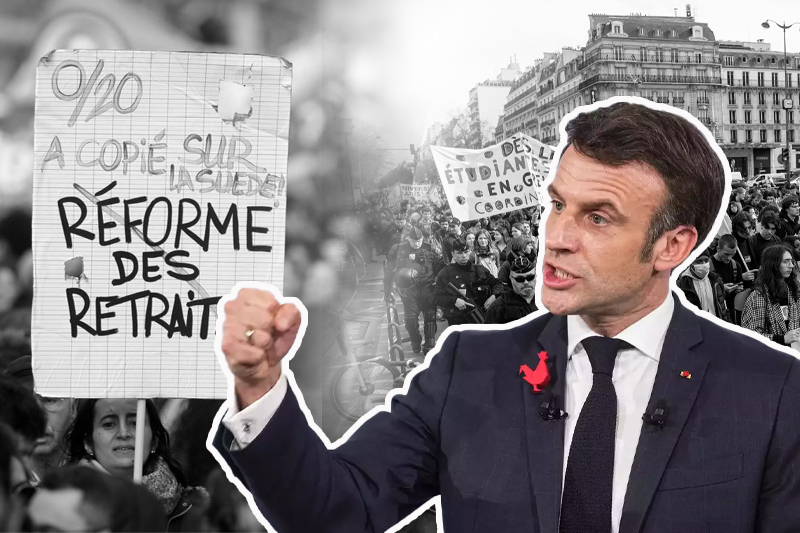
French government narrowly survives no-confidence votes, pension reforms to go ahead
The French government on Monday narrowly survived a crucial vote of no-confidence, triggered last week when it decided to force through pension reforms and increase the retirement age from 62 to 64 without a vote in parliament.
Prime Minister Elisabeth Borne invoked article 49:3 of the constitution, a procedure known to help governments that do not have an in-built majority in parliament bypass a vote they could potentially lose. But the associated downside is that the opposition parties can table a vote of no-confidence in no time, which Emmanuel Macron’s government encountered on Monday.
The vote fell short of the 9 votes needed. Had it been successful, the French president would have had to call new general elections or name a new government. While the no-confidence motion was tabled by centrist MPs, another one – tabled by Marine Le Pen’s far-right National Rally party – also didn’t pass.
Keep Reading
Now that both votes have failed, the controversial legislation to reform France’s pension policies and raise the age of retirement by a couple of years will become law, sparking new demonstrations in Paris. The highly-criticised move from Borne last week prompted thousands of people to come out on the streets in various cities to reject the legislation.
The previous protests turned violent in certain cities with some clashing with police as evening fell. Police with shields and batons fired tear gas at the people, while 101 were arrested in the capital.
The recent tensions have made France look unreformable, once again. In comparison, the change to the pension age in other European countries is far less dramatic. While Macron says the country’s ageing population makes the current pension scheme unaffordable, it’s not a sentiment shared by every person in parliament.




